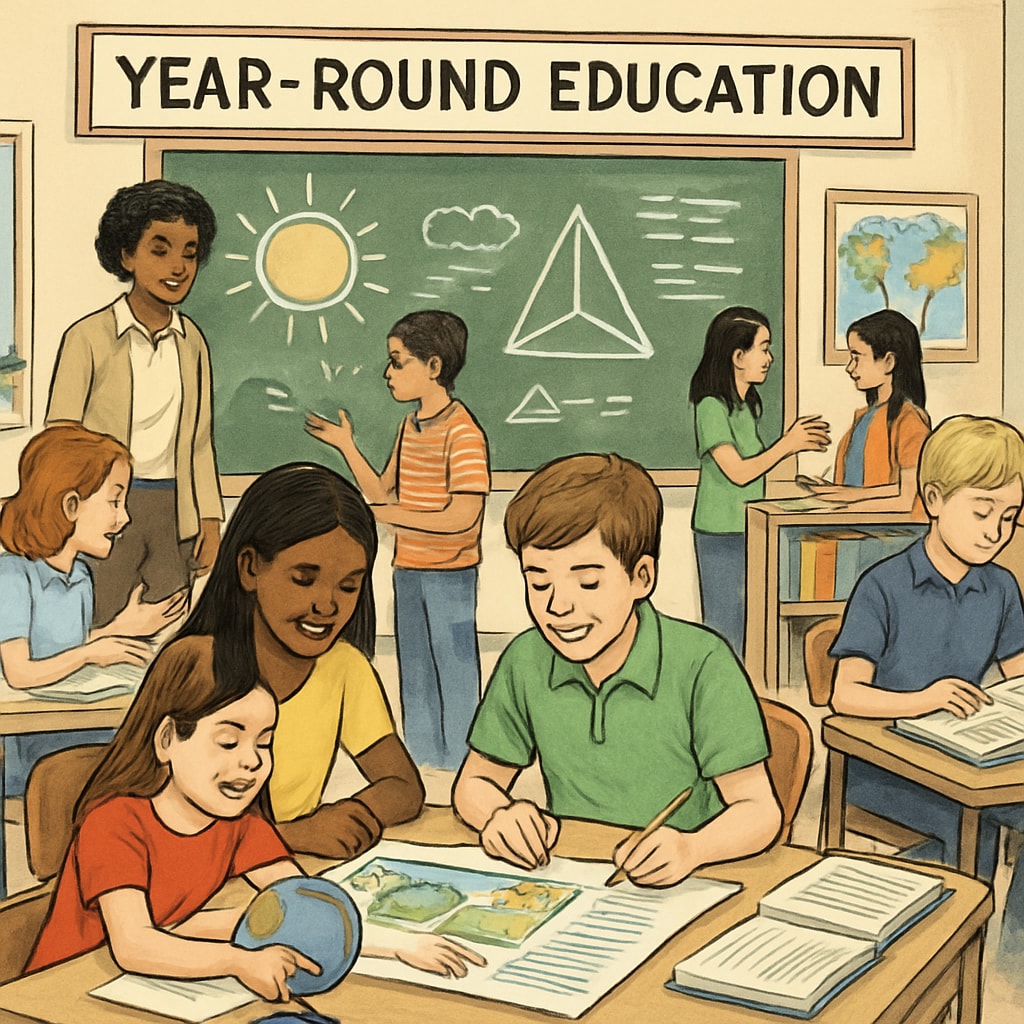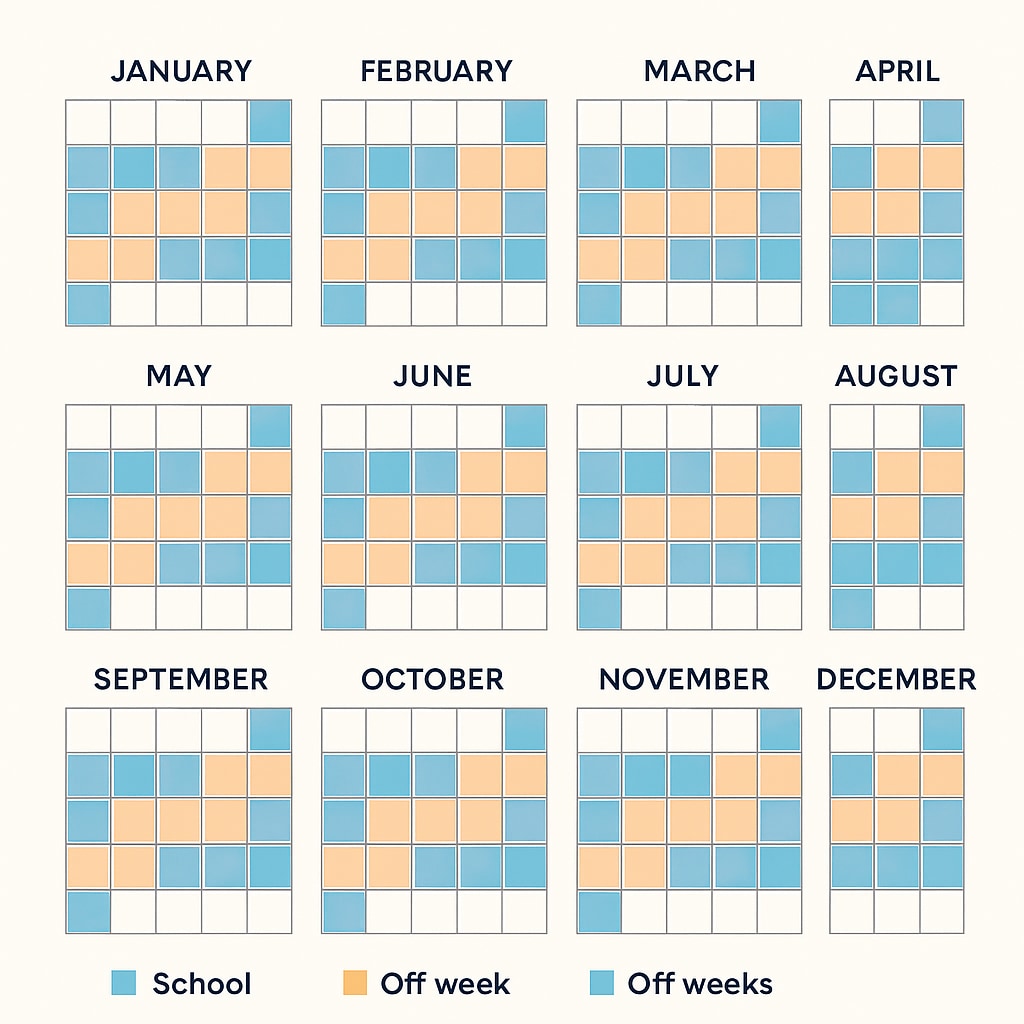Year-round schooling, learning retention, and summer break alternatives are gaining attention as viable solutions to the learning loss commonly experienced after long school breaks. Traditional education systems typically feature extended summer vacations, often resulting in students forgetting some of the knowledge acquired during the previous academic year. In contrast, year-round education with alternative schedules, such as one week of classes followed by one week of break, is emerging as a promising approach to address this issue while aligning with modern cognitive science and societal needs.
The Science Behind Learning Retention
One of the primary arguments for year-round schooling is its potential to improve learning retention. Cognitive science research has consistently shown that extended breaks from structured learning environments can lead to significant “forgetting curves,” where previously learned material fades over time due to lack of reinforcement. By incorporating shorter, more frequent breaks throughout the year, year-round schooling mitigates this problem. Regular intervals of learning and rest allow students to consolidate their knowledge and maintain consistent engagement with educational content.

Alternatives to the Traditional Summer Break
Instead of the conventional three-month summer vacation, year-round schooling introduces innovative schedules, such as a one-week-on, one-week-off model. This approach not only curbs learning loss but also promotes better work-life balance for families. Additionally, students benefit from reduced academic pressure, as they are not required to cram months’ worth of material into their memory before long breaks. Schools adopting this model have reported higher student performance and engagement levels, suggesting that frequent, structured breaks enhance both mental well-being and educational outcomes.

Assessing Societal Needs and Feasibility
Year-round schooling also aligns with evolving societal demands. Modern families often struggle to coordinate childcare and extracurricular activities during extended summer vacations. Shorter, more frequent breaks provide greater flexibility, helping families balance work and personal commitments. Moreover, this model addresses inequities in education caused by disparate access to summer programs. According to Wikipedia, summer learning loss disproportionately affects students from lower-income families, who may lack access to enrichment activities during traditional breaks.
However, implementing year-round schooling requires careful consideration of logistical challenges, such as teacher workload, curriculum adjustments, and community buy-in. Studies from the Britannica suggest that clear communication and stakeholder involvement are critical for successful transitions to alternative education models.
Conclusion: A Step Toward Educational Reform
Year-round schooling offers a compelling solution to the perennial issue of learning retention and summer learning loss. By adopting innovative schedules, such as the one-week-on, one-week-off approach, schools can provide students with consistent engagement, enhanced cognitive retention, and improved mental well-being. While challenges remain in implementation, the potential benefits for students, families, and educators make it a model worth exploring.
As education continues to evolve, breaking away from traditional practices could pave the way for more effective and inclusive learning environments.


